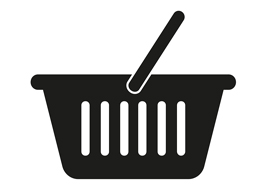
November 27, 2017

Source: Bigstock
The advent of a White Christmas is now heralded by Black Friday: this infamous moment when the grand coalition of Western capitalism starts whipping its adherents toward the tills. Six weeks later, the same people are spat out into the dawn of a New Year, bleary-eyed and broke. Black Friday gives way to Blue Monday, the “most depressing day of the year.” If Einstein was right—and insanity is repeating the same thing and expecting different results—then the West has it bad.
Everyone knows consumerism is a crock. Yet like a hooker returning to her pimp, it grips us with forces too deep to be escapable. These are partly anthropological. We have human needs, which are expertly subverted into human wants by the marketing machine. We have a desire to compete, which is brilliantly exploited by the semiotics of different brands. We assuage our moral consciences by decrying these appetites, while becoming evermore engorged on them.
This is partly because we castigate our materialism without realizing that consumerism is much worse. The past was nothing if not materialistic; but it was a materialism intended to last. Leonardo would leave The Last Supper for weeks at a time before returning to add a brushstroke. It is a revealing detail for an era when life was “nasty, brutish, and short,” and when death by accident awaited at every street corner. To adapt a phrase from Tolkien: If something was worth doing, it was worth doing slowly. Leonardo knew he was only flesh and blood, so the painting would outlast him.
In a consumer society, our products cannot be allowed to outlast us. Quite the reverse. The apotheosis of our relationship with a possession is when we buy it. The moment of purchase is a moment of orgasm. When no longer animated by the thrill of acquisition, the new thing soon reveals its indifference. The high fades, only to be bettered by another purchase. This irrational value proposition is precisely the opposite of historical norms of commerce, which used to mean an object’s value being released over time and use. Now its value is not in its use but in its consumption, which happens in the moment we part with our money. It is, by nature, transient.
And the more transient, the better. Hence the ever-shortening replacement cycles of iPhones; the fickle demands of fashion; the pressure to replace your car without any improvement in its core technology. This drives a huge efficiency paradox in the West. Our markets and supply chains and digital price platforms are minutely efficient, yet we generate mountains of waste. This has a significant bearing not only on our emotional lives but on our shared future. Economic growth may mean making things cheaper, which means making them disposable; but it cannot do so forever.
Yet what is the alternative? Capitalism is a natural consequence of free societies; and consumerism appears to be the natural consequence of capitalism. The agoraphobia of endless choice remains more congenial to human instincts than Communism. The average individual may be de facto powerless in the face of corporate marketing, but they are de jure free: No one is forced to make a consumer purchase. As Erich Fromm wrote in The Art of Being, the chains that bind them are on the inside.
This is especially true as consumerism works by infantilizing people. It narrows focus to the self and the immediate at the expense of others and the long term. It is emotional junk food. The altruistic consumer does not exist, and neither do corporates want him to exist. The altruist—like the financial saver—becomes economic dead weight. Physical consumerism is further abetted by financial consumerism, driving us toward the next debt crisis
Here is the real toxicity of modern consumerism: that it is a philosophy not of plenty but of lack. The person who has enough is useless to a modern government or a modern economy. Advertisers know this, so they reach for the Big Lie, turning the notion that the “best things in life are free” to commercial advantage. Hence we see businessmen tearing off their suits and jumping into lakes, or the smile of a newborn baby—all mendaciously turned to serve a corporate brand.
The reality is that consumerism does nothing to strengthen the individual, let alone family life. The consumer is a brittle creature, ill-suited to the demands of human cooperation. He is prone to sudden psychoses, erupting into violence to beat someone else to a cut-price product that neither wanted a moment before. This Black Friday saw such fights break out across the globe. In London, the febrile atmosphere led to an affray when two people bumped into each other on a subway platform. The resulting panic and stampede triggered a full-scale terror alert, shutting Oxford Street. As a vignette of twin fault lines acting on Western society, it could not have been better constructed.